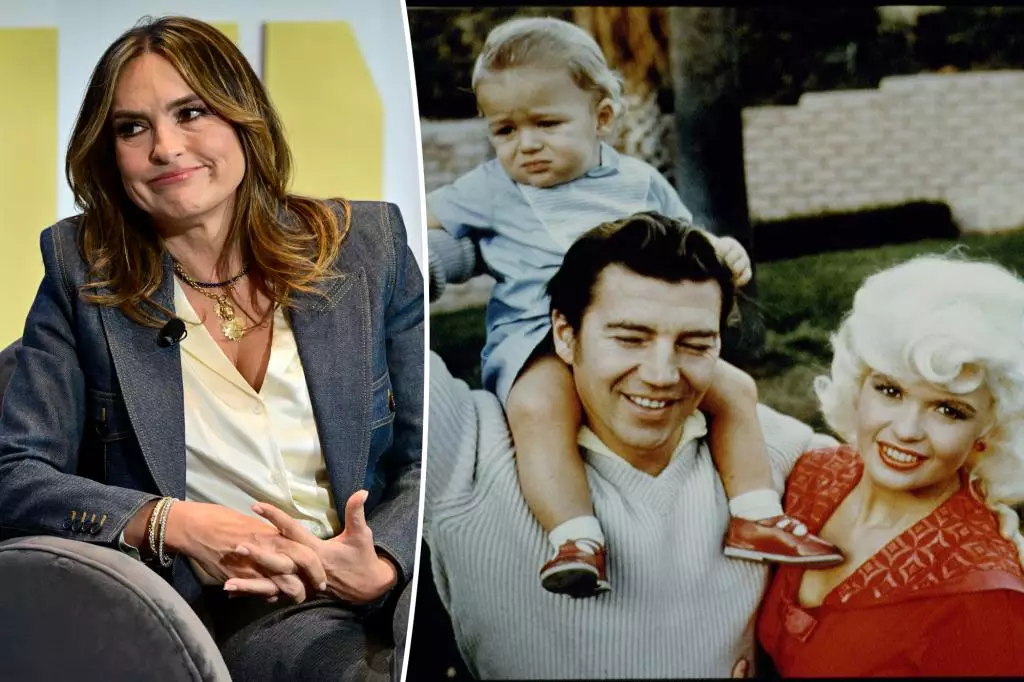Mariska Hargitay offers a poignant insight into the complexities of grief through her personal narrative. At the 18th Annual HOPE Luncheon Seminar held by the Hope for Depression Research Foundation, she took a moment to remember her mother, Jayne Mansfield, who tragically passed away in a car accident when Mariska was only three years old. The actress discussed how living in an environment laden with grief shaped her upbringing, indicating that loss was a dominant aspect of her childhood. Hargitay noted, “Because there was so much grief, there wasn’t room to prioritize anyone.” This statement underscores a common phenomenon in families grappling with trauma, where individual pain often gets overshadowed by collective sorrow.
Hargitay’s reflections serve as a reminder that the impact of loss can be profound and lasting. Growing up without effective emotional tools to process her mother’s death highlights a critical issue: the generational struggle with trauma and the inadequacies that often accompany it. The lack of understanding and resources to deal with such tragedies can leave lasting scars, affecting one’s emotional well-being well into adulthood.
Accepting the 2024 Hope Award for Depression Advocacy, Hargitay revealed that it took years for her to come to terms with her traumas, including her experiences of sexual trauma in her thirties. This delayed recognition of pain speaks volumes about society’s reluctance to address such issues openly. Hargitay’s candid admission about struggling to find the language to articulate her trauma serves as an encouraging message to others in similar situations. It illustrates that acknowledgment is often the first step toward healing.
Moreover, Mariska Hargitay’s founding of the Joyful Heart Foundation can be seen as a profound response to her own experiences. The foundation aims to provide support for survivors of sexual assault, domestic violence, and child abuse, emphasizing her commitment to addressing issues she once faced in silence. By channeling her trauma into advocacy, she has created a space where others can find understanding and support, thus transforming personal pain into collective healing.
Hargitay’s appreciation for therapy as a tool for healing cannot be overstated. She credits her journey to a network of skilled therapists who introduced her to various healing modalities. This underscores the importance of seeking professional help in navigating the turbulent waters of grief and trauma. Many individuals remain unaware of the diverse resources available to them; Hargitay’s story serves as an inspiring call to action, encouraging others to explore therapeutic avenues that might facilitate their healing processes.
The actress passionately conveyed, “I built a whole foundation that responded to trauma and survivors the way that I wanted to be responded to.” This statement echoes the sentiments of countless trauma survivors who long for validation and support in their recovery journeys. The implication is clear: when individuals feel seen and understood, they are more likely to engage with their healing processes.
Hargitay also emphasizes the necessity of embracing loss rather than shying away from it. In her previous discussions, she spoke of the painful but enlightening truth: “the only way out is through.” This philosophy highlights the importance of confronting emotions directly. Her willingness to engage with her grief has allowed her to reshape her relationship with loss over the years. Hargitay acknowledges that her navigation through grief has been challenging yet rewarding, ultimately leading her to brighter days.
Additionally, she paints a vivid picture of her mother, describing Jayne Mansfield as “an amazing, beautiful, glamorous sex symbol,” whose legacy continues to inspire her. By reflecting on her mother’s life rather than solely her death, Hargitay chooses to honor the beauty and vibrancy that Jayne represented. This dual focus on loss and legacy illustrates a nuanced understanding of grief—one that incorporates both sorrow and celebration.
Mariska Hargitay’s journey from grief to advocacy is a powerful testament to the resilience of the human spirit. Her evolution from a child grappling with unfathomable loss to a prominent figure advocating for trauma survivors embodies a profound transformation. Hargitay stands as a beacon of hope for countless others who might feel lost in their grief, reminding us that healing, while challenging, is possible. Her story reiterates the importance of seeking support, embracing our experiences, and continuing to strive for understanding amid the complexities of loss and trauma.

